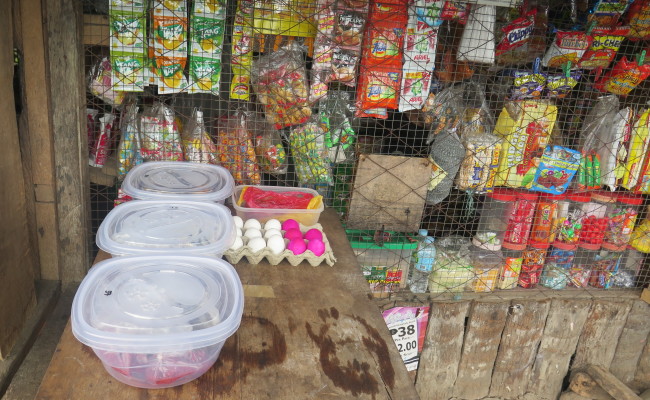Traditional Filipino culture would have Ms. Jenny Marteja exclusively taking care of her two children and being responsible for the house chores. All the while, her husband Mr. Felomino Marteja would be the sole provider of the family, working all day and bringing home food.

That is not the case for this 39-year-old sari-sari store owner. She may be a stay-at-home mother, but she has gone beyond the traditional demands of the role to provide for her family and neighbors. As a community partner of the Emergency Recovery in Leyte (ERL) Project from Barangay Hinulogan, Dagami, her business is an integral part of her home’s sustenance. She likes having this job because it allows her to meet her family’s needs without hampering her ability to keep an eye on her children.
Her husband Felomino earns about Php120.00 -Php300.00 a day driving a jeepney, though his total income depends on the number of passengers he gets within the day. Jenny recognizes that this amount is not enough to sustain the growing needs of their family, thus the importance of her sari-sari store.
She shared with us her experience after they were affected by Typhoon Yolanda and how ADRA Philippines’ ERL Project has impacted her life:
“Basically it was a challenging time for our family during the aftermath of the super typhoon, which left my husband jobless and without any income for about 2 months.
Good thing we still saved some of the basic goods from our existing sari-sari store such as sardines, meatloaf, noodles, which was very essential during that time. Later on we used them for our food consumption, which we considered as one of our coping mechanisms to survive.
A month after the typhoon struck, we were able to restart our sari-sari store. This was thanks to the little savings we had from our pockets and the remittances we received from our loving relatives while waiting for my husband to be back at work as a jeep driver.
We were very thankful for the assistance we received from ADRA. I can say that we are still in the process of recovery, with our former income and savings divided among other uses such as housing repair, education, and food consumption. But through the cash capital we received, amounting to Php 10,000, we were able to add more basic goods to our sari-sari store. This meant we could provide not just for our family’s needs, but for the basic needs of our neighbors in the barangay as well.”

